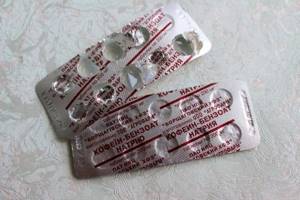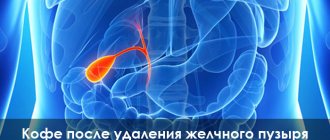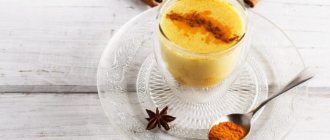Why do you want coffee?
The constant desire to drink coffee is explained by several reasons. A person may have a deficiency of essential microelements in the body. It contains some essential substances. Among them:
- magnesium;
- potassium;
- manganese;
- riboflavin;
- pantothenic acid.
In addition, coffee beans contain chlorogenic acid, which functions as an antioxidant that the body itself is not capable of producing. This acid is what gives the drink its bitterness. Grains contain many amino acids and protein structures.
If there is a deficiency of macro- and microelements in the body, then the need for coffee increases.
The reasons why you constantly want coffee can also be attributed to habit. The coffee drink is a natural energy drink that is addictive. A person, on a subconscious level, cannot live normally without drinking at least a cup.
Coffee as a need
Recently, the opinion has become widespread that you want coffee when the body lacks certain minerals or vitamins. We did not find any references to medical studies of this fact anywhere. But it has been proven that coffee beans contain hundreds of components.
- One of the specific components of coffee beans is chlorogenic acid. Only in coffee, and in no other product, is it contained in such large quantities. Together with tannins, chlorogenic acid gives a bitter-tart coffee taste. It is a good antioxidant and cleanses the body. When grain is roasted, the content of chlorogens in it decreases, but they do not disappear without a trace. Perhaps the need for chlorogenic acid is precisely covered by a cup of coffee.
- The grains have a high protein content, up to 20%. A lack of protein can also make you want to drink a good cup of coffee.
- The grains contain about 20 amino acids. Their content is insignificant, but the body needs them in small quantities. If you're craving coffee, you may simply need to replenish your amino acid balance.
How a habit is acquired
Once ingested, caffeine quickly enters the bloodstream. Brain structures, through sensory receptors, begin to produce dopamine, norapinephrine and adenosine. Changing the concentration of these hormones causes an increase in intellectual abilities.
A coffee drink can improve tone, mood, and improve memory. This leads to a sense of well-being. But this effect does not last long, so a person constantly craves coffee. However, if the daily dose exceeds 6 cups, then addiction develops, which is difficult to overcome.
From the point of view of habit development, everything happens differently. The desire to drink coffee all the time is explained by the presence of alkaloids and caffeine in this drink. The habit of caffeine becomes the cause of addiction. In its absence, withdrawal syndrome begins to develop in the body.
If a person realizes that he is developing an addiction, there are several tips to help get rid of it:
- you need to regulate your daily routine and allocate more time for sleep, since coffee is usually needed to cheer you up;
- artificial lighting disrupts the biological clock. Sleep patterns become disrupted, which leads to rapid fatigue, lack of sleep and the inability to concentrate without a cup of coffee. In this case, a fixed bedtime will help, as well as dimming the lights an hour and a half before.
Energy drink or sleeping pill: why does coffee make you sleepy?
For many, coffee is synonymous with vigor, but there are still many people who drink it to... fall asleep! Moreover, drowsiness after a cup of coffee is a completely natural reaction of a healthy body. But why is coffee an effective energy drink for some, while for others it is the best sleeping pill? We were looking for an answer together with our experts and will be glad to have a constructive discussion with you in the comments.

Everyone wants to sleep after coffee
Coffee contains two natural organic substances - the alkaloids caffeine and theobromine, which have different effects on the central nervous system. If caffeine, which is in the upper shell of the grain, dilates the renal vessels and narrows all the others, then theobromine from the inner shell has a radically opposite effect: it reduces pressure, dilates blood vessels, etc.
The first thing after you drink a cup of coffee is caffeine, which has a bright and invigorating effect on the body.
Caffeine is an antagonist of adenosine, which is responsible in our body for the accumulation of drowsiness during wakefulness. Caffeine temporarily suppresses the accumulation of adenosine, causing a surge of strength and vigor.
But this action does not last as long as you might think. Already 20-25 minutes after caffeine, theobromine appears on the scene, also a useful alkaloid in its own way, which relaxes the body, has a positive effect on cognitive abilities and even improves mood.
But! Only if your body is not exhausted by endless sleepless nights and does not need quality rest. Otherwise, you will most likely want to sleep. Some experts are confident that if you drink a glass of water at this time (20 minutes after a cup of coffee), you can neutralize this effect by restoring the water-salt balance.
This is why, by the way, grain and instant coffee have such radically opposite effects on humans, despite the fact that both are made from the same grain. The fact is that instant is made from the inner shell of the grain and there is much more theobromine in it than caffeine.

The 30th kilometer effect
Sad statistics. Most accidents on highways were recorded at a distance of 30-50 kilometers from a populated area or roadside cafe. This phenomenon even has a name: the long-distance driver effect or the 30th kilometer effect. In fact, this is a consequence of the effect of theobromine - when, half an hour after a cup of an invigorating drink, you suddenly want to sleep.
Many consider this to be nothing more than a myth, but there is definitely some truth here. If you are very tired, even a liter of coffee will not save you - only quality rest will help. After all, coffee itself does not provide energy, it simply helps to invigorate the body for a while. And when the central nervous system is heavily overloaded, adding caffeine to the body causes the opposite effect - essentially, the self-preservation instinct kicks in and the central nervous system simply turns you off.
So why not drink coffee at all?
Not at all. Coffee is one of the most effective ways to perk up. Coffee really works. Especially when you need to quickly wake up your brain before an important meeting or meeting. Or when you drink coffee solely for pleasure and not for functional purposes. To enjoy the taste of this aromatic drink. Coffee has a rich chemical composition and a huge list of beneficial properties that have made it an indispensable drink, a favorite of millions of people around the world.
Ground coffee Lebo “Prince”, for Turkish, 100 g 79 rub.
Coffee beans LavAzza “Qualita Oro”, 500 g 752 rub.
Ground coffee Lavazza “Crema e Gusto”, 250 g 258 rub.
Lavazza “Qualita Oro” coffee beans, 250 g 351 rub.
Ground coffee Lebo “Extra”, for Turkish, 75 g 61 rub.
Ground coffee Lavazza “Qualita Oro”, in a tin can, 250 g 400 rub.
Bean coffee Bushido “Red Katana”, 1000 g 1921 rub.
Coffee beans Lavazza “Qualita Oro”, 1000 g 1550 rub.
Choose coffee on TEA.RU
But, for example, if you are a driver, give preference to tea on a long journey. It contains more caffeine (especially green) and affects the body much longer than a cup of espresso.

If you have a tough week with a series of endless deadlines, sleepless nights and nervous negotiations, coffee can also be a bad help for you. You won’t even notice how you will consume more and more cups, without experiencing vigor and a surge of strength, which will completely exhaust your body. For a fun alternative, try brewing shu pu-erh. Paired with a piece of dark chocolate, this tea will help you focus and improve your mood.
How to stay awake after coffee
Essentially, all people have the same receptors, so the effect of coffee is more or less the same. But do not forget that the reaction of each specific organism is influenced by many factors:
- Do you drink Arabica or Robusta?
- did you order espresso or latte;
- drank 100 ml or 300 at once;
- whether your blood pressure is low or high.
It is also important what time of day you drink coffee. We published an average infographic depending on cortisol peaks a little earlier, and we duplicate it again:

You can only find out your individual reaction to coffee through experience. But there are still a number of factors that can play a role:
- Milk or cream greatly weakens the effect of caffeine - so after a cappuccino or latte, a tired person will fall asleep faster.
- If a cup of coffee was preceded by a hearty lunch or a hearty afternoon snack, the surge of energy may also not happen.
- Drinking water after coffee reduces the concentration of caffeine. But at the same time, there will not be a strong jump between a surge of vigor and drowsiness.
- You can enhance the effect of coffee, for example, with freshly squeezed grapefruit juice - some of its substances block liver enzymes, so as a result, caffeine lasts longer.
Many more coffee lovers at some point notice the so-called caffeine tolerance. When the usual portion of energy does not provide, and after an additional cup you want to sleep even more. In this case, temporarily giving up your favorite drink works well.
Why is there a need for coffee?
The need for coffee also arises due to the fact that the body lacks minerals. Grains have an antioxidant effect, stimulate the functioning of certain brain structures and contribute to improved well-being. Thanks to coffee drinks, the body is cleansed of toxins.
- Vitamin B3 takes part in the synthesis of good cholesterol, which reduces the risk of atherosclerotic plaques. One freshly brewed cup of coffee contains the daily requirement of potassium.
- The lack of manganese in the body can also be compensated for with a cup of coffee. It plays an important role in maintaining the level of hemoglobin, which transports oxygen throughout the body. If you have a strong desire to drink your favorite drink, there may be a problem in the hematopoietic system.
- Grains contain a lot of proteins and amino acids. These unique substances, which give coffee a bitter taste, make a person want to drink it every day.
Of course, consuming uncontrolled amounts of caffeine is very harmful, since it can cause headaches, anxiety, tremors of the limbs, and heart problems. But in normal doses, caffeine is even beneficial for the body. It is often recommended for people suffering from migraines. Caffeine can also be prescribed in tablet form to pregnant women to normalize blood pressure.

Tradition and invitation to conversation
For many, coffee becomes a symbolic drink. This has been the case since ancient times. And what could be better than a conversation over a cup of cappuccino? When pleasant moments in life are associated with taste and smell, feedback connections arise in the brain. Therefore, the desire to drink your favorite espresso arises when you want to relax and unwind.
Sometimes a person associates taste with loved ones. This occurs due to the associative ability of memory.
For example, you drank espresso with your beloved man on the first date. What thoughts will arise when you smell the aroma of this drink again? That's right, pleasant and positive. And you'll want to drink coffee.
Do you want coffee or just to talk?
The rituals of modern man are no less diverse than those of his distant and superstitious ancestor. Coffee remains a symbolic drink for many, just as it was hundreds of years ago.
- Friendly gatherings in a cafe are accompanied by a cup of cappuccino, a heart-to-heart conversation with a friend cannot be imagined without the taste of oriental coffee, and family holidays end with an indispensable cup of espresso? If all the pleasant and joyful circumstances of life are accompanied by the taste and smell of coffee, then after a while a feedback psychological connection arises. Where there is coffee, it’s good. Therefore, the desire for coffee can arise at those moments when you want to relax and get a positive impulse.
- Coffee can be associated with the image of a loved one. For example, if your beloved grandmother was a passionate fan of the drink, then the smell of freshly prepared coffee will remind you of her. The point here, of course, is not the magical properties of coffee, but the associative abilities of our memory.
- Biologists say that smells are the most powerful ability for humans to consolidate associations. Therefore, if you smell coffee, remember something or someone good, then most likely you will want to drink a cup of coffee in order to stay close to your pleasant memories a little more.
Symbol of pleasure
Many marketers use the smell of a freshly brewed coffee drink to attract customers. Doctors consider this the best psychological technique that almost always works. People pay attention to a pleasant aroma not only because they want to drink a drink right now. It simply gives the brain a signal, and the person remembers the pleasant moments associated with gatherings over a cup of espresso.
People want coffee not only to lift their mood, but also because many have already developed a ritual of starting every day with at least a small cup of the drink. An Americano or cappuccino is suitable for this.

Despite all this, you need to understand that coffee addiction is very similar to nicotine or alcohol addiction. Sometimes the absence of a cup of coffee at a person’s usual time can lead to a headache, a deterioration in general well-being, and an inability to concentrate. Therefore, it is better to monitor the amount of coffee you drink per day so that this wonderful drink really brings pleasure without any harm to the body.











